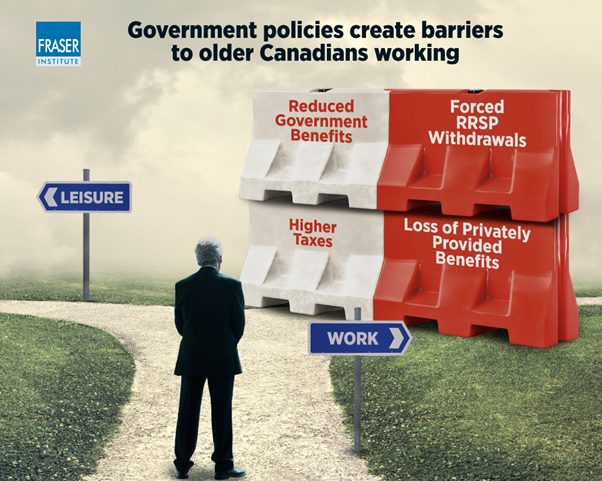Fraser Institute study says that changes are needed to benefit those who want to keep working into their senior years

Canadians are living longer, more active lives, which for many will also mean continuing to work.
Deciding to delay retirement may be purely a lifestyle choice or it may be a financial necessity, but the choice is not as simple as perhaps it should be.
That’s according to a new report from the Fraser Institute which claims that Canadian government policies discourage older people from continuing to work.
The study notes that, by 2040, the share of older Canadians in the workforce will be 38%, almost double its 2010 level (20%).
But for those who stay working past 65 there are consequences including benefit reductions (also known as ‘clawbacks’) for the Canada Pension Plan, Old Age Security, and Guaranteed Income Supplement.
Then there’s the income tax implication with workers aged 65+ facing a higher effective tax rate of 15% as a clawback on income above $39,000 (in 2021) due to a federal tax credit.
“All Canadians, no matter their age, should be free to make their own choices about working without government limiting those choices or essentially penalizing those who want to work,” said Morley Gunderson, professor emeritus of economics at the University of Toronto and author of Barriers to the Labour Force Participation of Older Workers in Canada.
RRSP conversion
Those who are still working past 71 will face mandatory conversion of their RRSP to Registered Retirement Income Fund (RRIF) or annuity.
They are also forced to start making withdrawals, which may push them into a higher tax band depending on their work income.
And there are potential further clawbacks on some government pension programs that mean lower benefits if recipients keep working.
“In Canada, the rules around employment and retirement seem antiquated and detached from the changing nature of work and the desire of many Canadians to continue working into their golden years,” Gunderson said. “These barriers to working not only hurt the economy but can also hinder the ability of seniors to stay active and healthy.”




